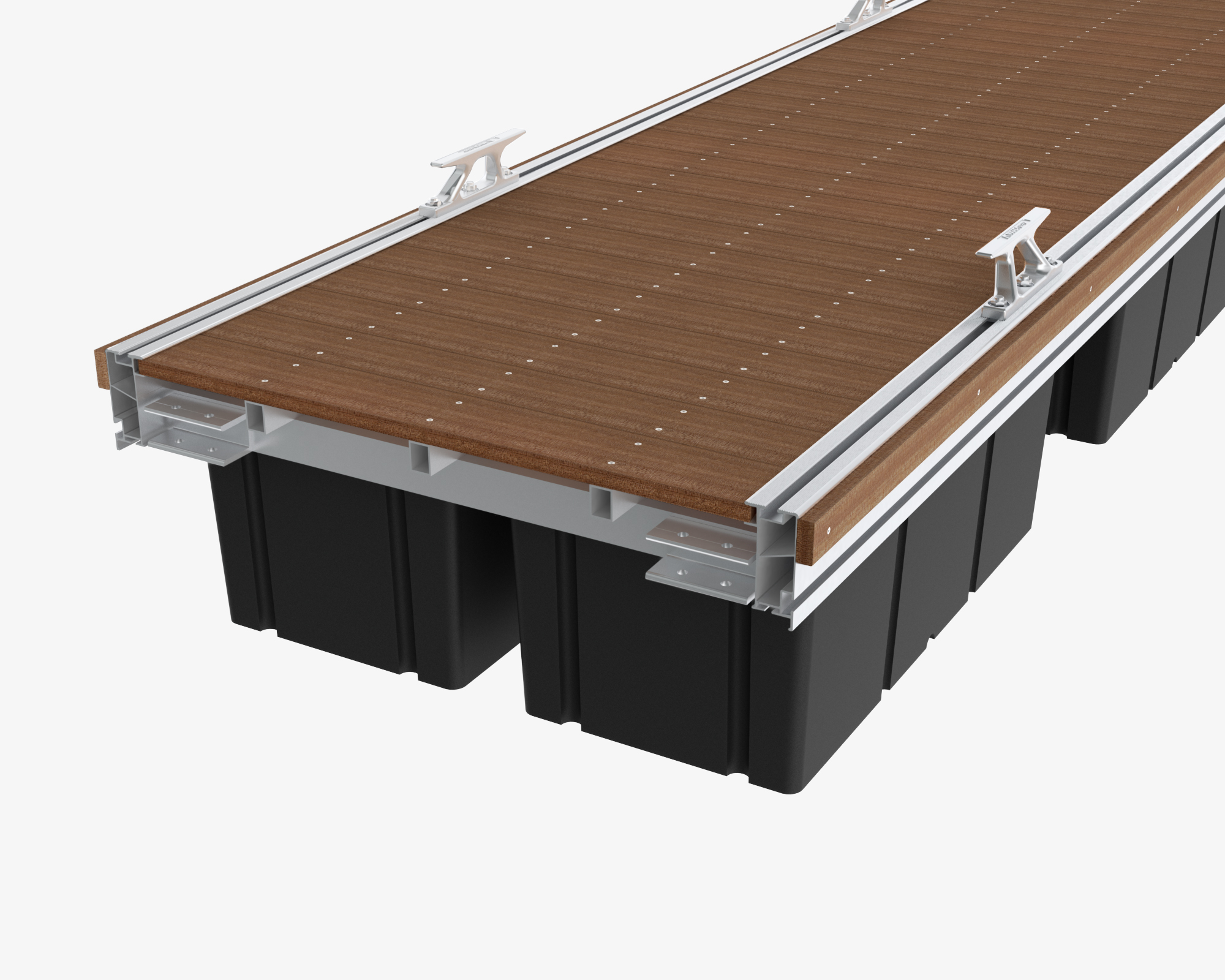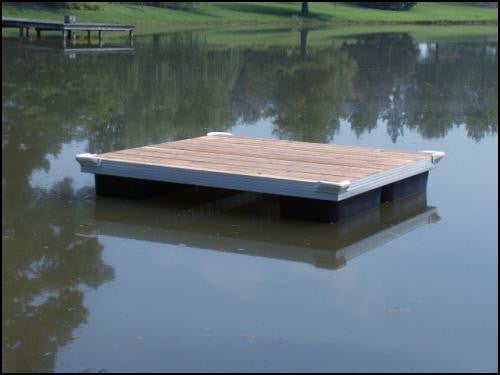Discovering the Comprehensive Floating Dock Providers Supplied by Industry Leaders
Wiki Article
The Ultimate Guide to Choosing the Best Floating Docks
Picking the suitable floating dock calls for a thorough understanding of different aspects that affect both efficiency and long life. Variables such as dock types, materials, and important functions dramatically influence your decision-making process.Understanding Floating Dock Types
When choosing a drifting dock, it is vital to recognize the numerous kinds readily available, as each offers distinct purposes and applications. Floating docks largely come under 3 groups: modular, fixed, and pontoon docks.Modular docks are composed of individual sections that can be easily assembled or reconfigured, making them ideal for changing water levels and varied usages, such as industrial operations or leisure activities. Their versatility enables customization based on specific demands.

Pontoon docks are characterized by their resilient structure, commonly composed of several pontoons that offer security and support. They are especially fit for bigger vessels and are commonly utilized in marinas or for beachfront residential properties. Understanding these kinds help in selecting one of the most appropriate floating dock to fulfill particular requirements, ensuring optimum functionality and security.
Key Materials for Durability
Selecting the right products for floating docks substantially effects their sturdiness and long life. The most common materials include wood, plastic, metal, and composite products, each offering unique benefits and limitations.Wood, frequently favored for its visual charm, needs normal upkeep to stand up to dampness and degeneration. Pressure-treated lumber can boost resistance to rot, yet it might still be vulnerable to pests and weathering.

Plastic docks, constructed from high-density polyethylene (HDPE), are immune to rust, UV radiation, and impact, making them a preferred option for coastal settings. Their lightweight nature additionally promotes simple setup and moving.
Steel docks, normally built from light weight aluminum or galvanized steel, supply phenomenal stamina and resilience. They are immune to rust, specifically when treated, yet might call for additional insulation to stop warm buildup in hot environments.
Composite materials, integrating wood fibers and plastics, deliver the advantages of both timber and plastic, withstanding dampness and fading while requiring marginal maintenance. - floating dock builder
Inevitably, the choice of products need to align with ecological problems, intended use, and upkeep choices to guarantee the floating dock remains practical and cosmetically pleasing in time.
Crucial Features to Think About
While the selection of materials is vital, considering necessary features for floating docks is equally essential to make sure optimum efficiency and individual satisfaction. One crucial attribute to evaluate is the dock's buoyancy capability, which determines just how much weight it can sustain without immersing. floating dock company. This is crucial for suiting boats, personal watercraft, and also leisure tasksAdditionally, mobility is a substantial consideration. Depending on your requirements, you might want a dock that is simple to disassemble and deliver, especially if you intend to relocate it seasonally. Security is another important attribute; a properly designed floating dock should decrease movement brought on by wind and water currents, giving a safe and secure system for customers.
Security features, such as non-slip surfaces and rounded sides, are likewise vital to avoid accidents, particularly in damp conditions. Moreover, think about the availability of accessories, such as bumpers, ladders, and cleats, which can improve the functionality of your dock.
Installation and Upkeep Tips
Establishing and keeping a floating dock calls for cautious planning and interest to detail to guarantee its durability and optimal efficiency. Begin by these details selecting an appropriate see here now area that reduces exposure to solid currents and waves, which can cause damage. Make certain that the water deepness is sufficient for the dock's elevation and that it is secured securely to stop movement.Throughout installation, comply with the manufacturer's guidelines closely, as incorrect assembly can jeopardize stability. Usage premium materials resistant to deterioration, such as aluminum or dealt with wood, to boost sturdiness. Frequently evaluate all elements, including floats, connectors, and anchoring systems, for indications of damages or wear.
If your dock makes use of flotation protection devices, ensure they remain free and intact from punctures. By adhering to these installation and upkeep ideas, you can take pleasure in a reliable and practical floating dock for years to come.
Budgeting for Your Dock
Budgeting for your dock is a vital step that can significantly impact your total contentment and investment in a waterfront home. Establishing a clear spending plan assists you navigate the numerous choices offered and guarantees you make notified decisions that straighten with your financial capacities.Begin by identifying the size and style of the dock you require, as these elements will greatly affect the cost. Floating docks can differ considerably in rate, depending upon products, buoyancy, and functions like ramps and accessories. Study different manufacturers and vendors to compare costs and understand the market worth.
Along with first costs, take into consideration ongoing expenditures such why not check here as maintenance, insurance policy, and potential fixings. Designate funds for these recurring expenses to avoid shocks down the line. It's also sensible to allocate any type of necessary licenses or inspections, which may be required by regional regulations.
Last but not least, keep in mind the possible return on investment. A tactical dock can enhance your residential property's value and allure, offering a favorable monetary influence in the long-term. By budgeting properly, you can make certain that your dock meets your requirements without endangering your financial security.
Verdict
To conclude, selecting the optimal floating dock requires a complete analysis of numerous factors, including dock kinds, products, necessary attributes, and installment processes. Prioritizing sturdiness and compliance with local policies ultimately enhances capability and building worth. Mindful consideration of monetary constraints will further ensure an audio financial investment. By sticking to these standards, people can make educated decisions that promote lasting satisfaction and usability in marine settings.
While the selection of products is critical, thinking about essential features for floating docks is equally essential to guarantee optimum efficiency and customer satisfaction.Setting up and maintaining a floating dock requires careful planning and attention to detail to ensure its longevity and optimal performance. Floating docks can differ dramatically in rate, depending on products, buoyancy, and attributes like ramps and devices.In final thought, choosing the suitable floating dock requires an extensive examination of different aspects, including dock types, materials, essential attributes, and installment procedures.
Report this wiki page